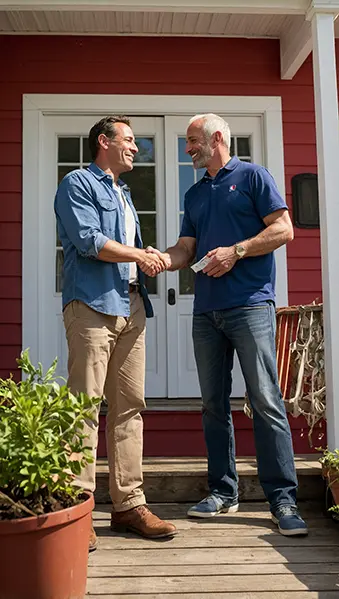Is Your House Priced Too High?
Is Your House Priced Too High?

Every seller wants a quick, profitable, and hassle-free sale. But did you know that one of the biggest obstacles to achieving this could be your asking price? Pricing your home correctly is key to attracting buyers and securing the best offer.
Here are four signs that your home might be priced too high—and how partnering with your real estate agent can help you get back on track:
1. Lack of Showings or Offers
If your home has been on the market for a while with few showings or offers, buyers may find it overpriced. Experienced buyers can quickly spot homes that don’t align with their budget expectations and may pass over your listing. Your real estate agent can guide you in adjusting the price to attract more interest.
2. Consistent Negative Feedback
If feedback from showings consistently points to your home being overpriced compared to other properties, it’s time to rethink your pricing strategy. Your agent can analyze this feedback and suggest changes—whether in price, presentation, or updates—to meet buyers’ expectations.
3. Extended Time on the Market
The longer your home sits unsold, the more buyers might suspect there’s a problem. In today’s competitive market, homes that linger often get overlooked. Your agent will help you compare your home’s listing time with local averages and decide whether a price reduction or another approach is needed.
4. Your Neighbor’s Home Sold Quickly
If homes similar to yours are selling quickly while yours isn’t, it’s a clear sign something is off—likely the price. Your real estate agent can track neighborhood sales and advise on any necessary adjustments to make your property more competitive.

How Much Is Your House Worth? What You Paid Doesn’t Matter
Many sellers base their asking price on what they paid for the house, plus a little extra. However, the market—not past purchase price—determines your home’s value. Think of it like this: Would you pay $1 for a banana when the store down the block sells them for 69 cents? Of course not! Homes work the same way. No matter what you paid, market values fluctuate based on what buyers are willing to pay right now.
Buyers also love to negotiate. So, it’s smart to start with a bit of a cushion, but pricing too high can backfire. While you want room to negotiate, your price should still be competitive enough to attract offers.
Square Foot Cost Comparisons and Appraisals
Buyers’ lenders will order an appraisal once an offer is made, so it’s important to price your home in line with similar properties in your area. Homes with comparable square footage can give you a good indication of the final appraised value. Your real estate agent will help you find those comparisons to ensure your asking price aligns with market realities.
Understanding Median Price vs. Average Price
When pricing your home, it’s important to understand the difference between median price and average price. The median price represents the middle point where half the homes are priced higher and half lower. The average price is calculated by adding all the home prices together and dividing by the number of homes. While the average gives a broad overview, the median gives a clearer picture of what buyers are actually paying. Your agent will help you understand which figure applies best to your situation.
Bottom Line
Pricing a home right requires a balance of market knowledge, buyer psychology, and strategy. When your price isn’t drawing in buyers, working with your real estate agent is the best way to course-correct and get your home sold.
Need help pricing your home? Contact me today for expert advice!
